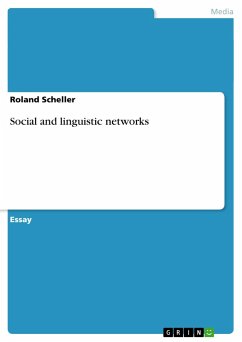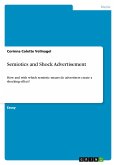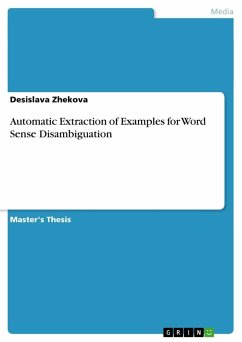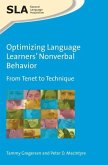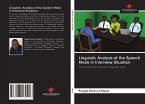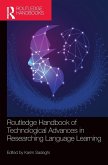Essay from the year 2000 in the subject Communications - Language, grade: 4, Cardiff University (Centre for Language and Communication), course: Sociolinguistics, language: English, abstract: Every human being participates in society and has relations to other human beings. What makes us human is the ability to speak. In order to communicate, people have to find a shared language. There is the fiction of Daniel Defoe's "Robinson Crusoe", but this is an exception. For to survive and to earn our daily bread we have to express our will and organise ourselves. In modern linguistics the expression network is very common. Every human being participates in a more or less elaborated network. The expression network has got its origin in computer science. There we talk about computer networks. It is possible to combine computers with each other and they can exchange information. This essay is about linguistic networks, that are networks between human beings. In order to discuss the notions"network" and "network relations" I refer to my own experiences on a typical Monday during semester time at Cardiff University. I also want to mention code-switching and describe a classical model of a linguistic network: William Labov's "Social Stratification of (r) in New York City Department Stores". Last but not least I want to criticise the choice of parameters for quality of linguistic networks in linguistics. Why do linguists not discuss the emotional quality of networks?
Hinweis: Dieser Artikel kann nur an eine deutsche Lieferadresse ausgeliefert werden.
Hinweis: Dieser Artikel kann nur an eine deutsche Lieferadresse ausgeliefert werden.

